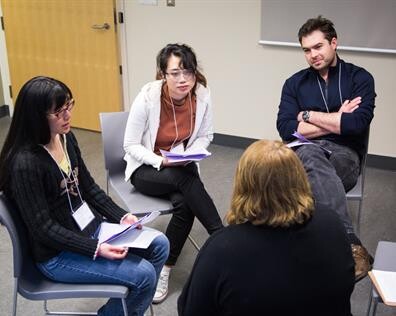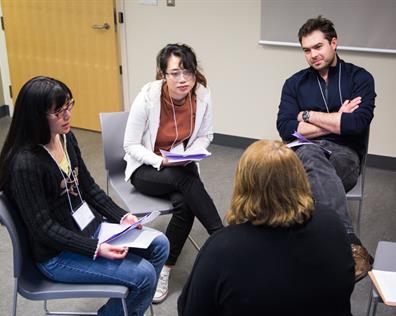Mobile Menu
-
MD Program
- Curriculum
- Interprofessional education
- MD Plus: Combined & Dual Degree Programs
- Academies
- Policies and Procedures
- Teaching in the MD Program
- Affiliated programs
- CACMS Accreditation
- Admissions
-
Student Resources
- Office of Learner Affairs (OLA)
- Community of Support
- Summer Mentorship Program
- Student Mistreatment
- Academic Calendar
- Incoming Students
- Resources for Indigenous Students
- Registration Requirements & Requests
- Research Opportunities
- Graduation & Alumni
- Student Tools & e-Resources
- Finances & Awards
- Student Assistance
- School Absences
- About Us
- MD/PhD Program

 It's unusual for doctors-in-training to put themselves in the shoes of their future patients. However, all first year medical students in the new Foundations Curriculum at the University of Toronto (U of T) were asked to do just that in a recent mandatory, one-day simulation experience titled, 'Getting to Know Patients' System of Care' (GPS Care).
It's unusual for doctors-in-training to put themselves in the shoes of their future patients. However, all first year medical students in the new Foundations Curriculum at the University of Toronto (U of T) were asked to do just that in a recent mandatory, one-day simulation experience titled, 'Getting to Know Patients' System of Care' (GPS Care).